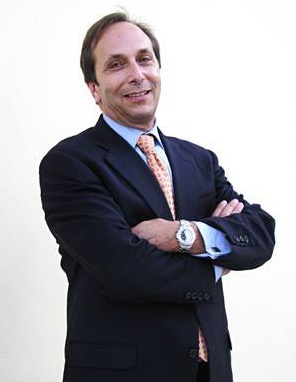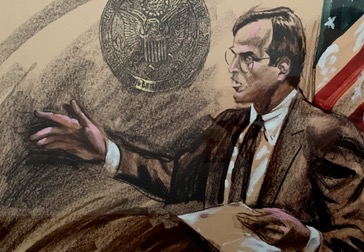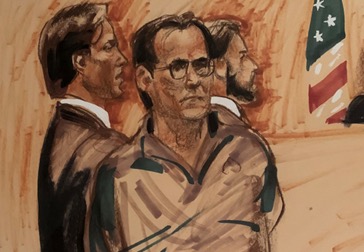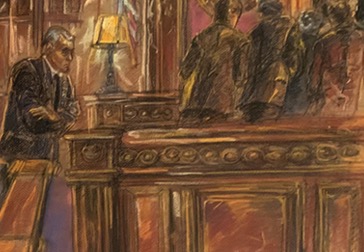5 Takeaways From The ‘New’ FCPA Corporate Charging Policy
A new policy guiding when corporations can avoid criminal charges under the Foreign Corrupt Practices Act for bribing foreign officials formalizes what had been a U.S. Department of Justice experiment and gives some amount of certainty for companies, experts say.
The FCPA corporate enforcement policy that Deputy Attorney General Rod Rosenstein announced on Wednesday is not a sea change, but it does bear some differences from the so-called FCPA pilot program the DOJ started in 2016. Experts saw five aspects of the new policy worth noting.
Continuity With the Pilot Program
In many ways, the policy codifies the pilot program that gave companies the possibility of avoiding foreign bribery charges by self-reporting the conduct to the DOJ, cooperating in its investigation and cleaning up their act. The program was initially set to run for one year, but it was extended in April.
The policy lists actions companies need to take for each of those three steps in language that more or less mirrors what was in the pilot program.
David Bitkower, a partner at Jenner & Block LLP who was the second in command at the DOJ’s criminal division, was encouraged to see the new policy build on the program and the practices around it.
“This means that the department’s leadership is listening to its career prosecutors in this area and taking a hard look at the record of the pilot program and drawing conclusions based on those facts,” Bitkower said.
More Certainty, Not 100% Assurance
The biggest change is that where the pilot program had dangled the prospect of the DOJ declining to bring charges for compliance with the pilot program, the new policy goes a step further, by instead providing the “presumption” that a company can avoid charges by fulfilling its requirements.
However, companies with “aggravating factors” don’t get that guarantee. Among others, those factors include corruption that is “pervasive” within the company, involves its executives, generates a “substantial” profit or is not the first such violation. A similar list of considerations appeared in the memo that created the pilot program.
Kara Novaco Brockmeyer of Debevoise & Plimpton LLP said that while the new “presumption” increases the incentive for companies with potential violations to self-report, it remains to be seen how the DOJ will apply the carve-outs. Brockmeyer led FCPA enforcement at the U.S. Securities and Exchange Commission until earlier this year.
“The devil is in the details. Everyone is going to be waiting to see how the Justice Department is interpreting the aggravating factors,” Brockmeyer said.
For those companies that jump through all the hoops yet still have aggravating factors, the new policy states prosecutors “will” agree to a 50 percent reduction off the minimum fine under the sentencing guidelines. The pilot program had provided that the government “may” agree to such a discount.
Delving Into “De-Confliction”
Under the pilot program, part of earning full cooperation credit meant dealing with so-called de-confliction requests. Typically, that meant the DOJ asking a company’s legal team to hold off on interviewing certain individuals and let the government go first.
Members of the defense bar have complained that such requests can get in the way of a company quickly understanding and addressing bad acts.
The new policy also lists de-confliction as part of cooperation but states that such requests will be for “a limited period of time and will be narrowly tailored to a legitimate investigative purpose.”
Morgan Miller of Paul Hastings LLP noted the DOJ’s stance is “much more constrained” than that of the U.K.’s Serious Fraud Office, which has expected companies to stand down during an investigation.
The difference creates tension for companies involved in cross-border cases, Miller said, adding that harsher policies like the U.K.’s can make it harder to fix problems.
“Where a company is effectively standing on the sidelines waiting for the government to complete its investigation, you are creating a potential for issues in remediating those problems,” Miller said.
Disclosure Credit and Remediation Rules
The new policy added some items and removed others that had been in the pilot program memo. Practitioners said the tweaks wouldn’t much affect the status quo.
On the self-disclosure step, the new policy ditches the idea that when companies are otherwise required by law to make a disclosure, doing so won’t earn them credit under the program.
Laura Perkins, a Hughes Hubbard & Reed LLP partner who helped to design the pilot program when she was at the DOJ, said she did not read the missing language to indicate a policy shift.
“I think that will continue to be something prosecutors look at in evaluating whether it was a ‘voluntary’ self-report,” Perkins said.
The policy also adds requirements to the remediation step. One of them is that corporations must retain business records and can’t use “software that generates but does not appropriately retain business records or communications” — a growing concern for prosecutors used to trolling email accounts for evidence.
Another requirement is for companies to assess the “root cause” of corruption failures. William Steinman, a practitioner who works on FCPA and other anti-corruption matters at Steinman & Rodgers LLP, said while that kind of analysis might have been implicitly expected, it bears spelling out.
“I think the reason it’s there explicitly this time around is that agencies have long said you can’t do a tick-the-box investigation, you really have to get to the meat of the issue,” Steinman said.
By Jody Godoy
https://www.law360.com/articles/989478








